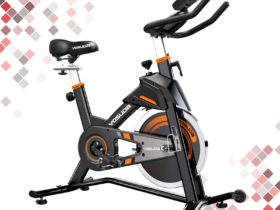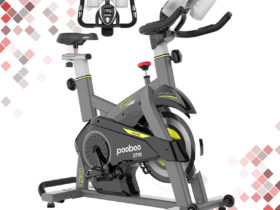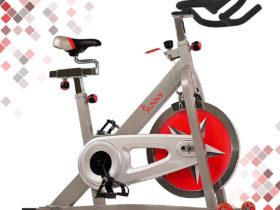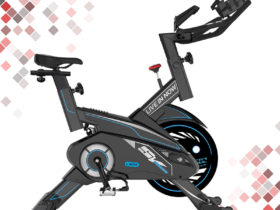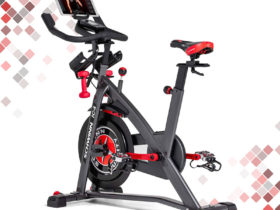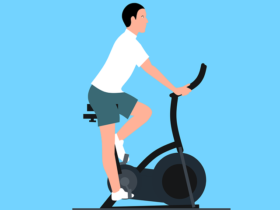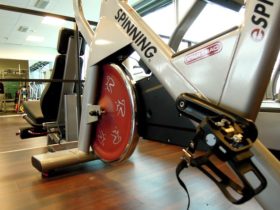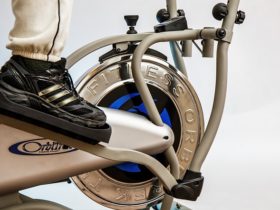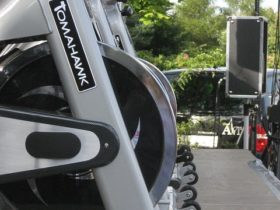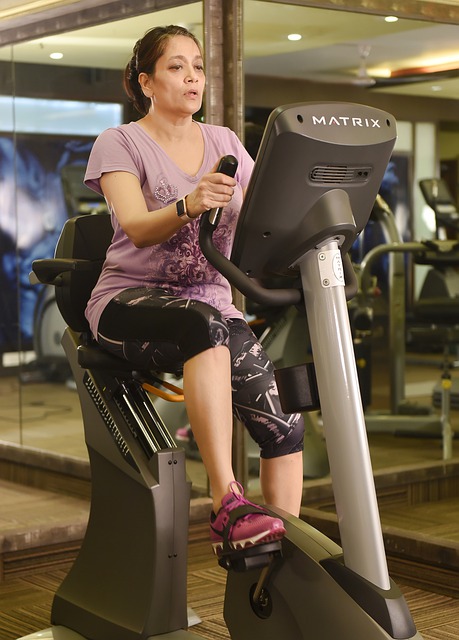Whether you choose to learn how to use a spin bike at home or go to a spinning class, there always remains the possibility of mistakes creeping into your spin cycle workout. While some of them may have arisen from the very first time you rode the spin bike. Others can develop as your body gets into a rhythm and is unable to keep up with advanced workouts. As they say, the first step in eradicating a mistake is to recognize it. In this brief guide, we shall study the common spin bike mistakes in detail and provide tips to eliminate them in your quest for the perfect form.
Spin Bike Mistakes – Improper Movement
The spin bike routine is all about reaching the right cadence and maintaining it. Spin bike workouts can have a wide range of body movements. It is not surprising that the vast majority of common spin bike mistakes involve poor cadence and erratic movement trying to keep up. This can cause the pressure on various body parts to shift from the optimal distribution. This can cause a range of health problems ranging from sprains to muscle and ligament tears. Below are the most common errors of movement:
Swaying from one side to another:
Professional outdoor bikers often sway from side to side in order to stretch muscles after many hours in the saddle. Indoor spin cycles don’t generally have this problem. So, there is no reason to emulate the illustrious professionals in this aspect. Indeed, swaying builds additional torque on the shoulders and wrists and this can cause fatigue to develop even when the workout is otherwise fine. Furthermore, swaying forces the body to constantly adjust to a different distribution of weight on either side of the saddle and this makes the workout seem harder than it really is.
In rare instances where the user has to sway just to maintain balance, it is likely that the cycle is either not properly balanced or the handlebars are uneven. Correcting these should reduce lateral movement (swaying) during the workout to minimal levels.
Stomping on Pedals without Pulling Up:
If you’re applying too much downward pressure on the pedals, you’re supposed to apply an equal amount of effort in the opposite direction when the pedal goes around. If you don’t follow through in this manner, your quads will suffer from the excessive workouts while other muscles of your body will remain underutilized. The concept of “pedal in circles” is very important to proper technique.
A good solution for those who suffer from this problem on a recurring basis is to strap the feet securely onto the pedals and avoid pulling the feet in any direction except the one in which the pedal is supposed to move. Another solution is to image that you have mud on the bottom of your shoe. You would wipe it off by scraping backwards along the ground. This is the same pedal motion you should use on the spin bike.
Incorrect “tap back”:
A tap-back involves touching just the front edge of the seat and bouncing back to a “standing” position. Ideally, the tap-back should occur with the arms in their normal position and the upper body relaxed. If the arms are bent or the shoulders hunch forward during tap-back, the benefits that are supposed to go to the gluteal muscles are lost.
The best spin bikes in the market come with seat adjustment systems that allow the user to choose a seat position that allows for tap-back without causing the shoulders or arms to change their position.
Excessively Complex Movements:
It is true that the complexity of the movements increases as you move up the workout ladder. Cycling instructors like Jennifer Sage argue that trying out excessively complex or out-of-the-ordinary moves are not recommended regardless of the expertise of the workout enthusiast. You should try to minimize the complex movements and focus on your legs and your lungs!
The speed is erratic:
While there are speed bands available for virtually every type of workout regime, it might be possible that the speed band isn’t ideal for you. You might need a higher or lower speed band. One indication of such incompatibility is that you go fast, or too slow, without developing a steady rhythm. Such lack of rhythm can cause your muscles to become confused and thus overexert themselves, leading in turn to injuries.
If you find the ideal speed band to be incompatible with your physical requirements, you can try lower and higher bands till you achieve the ideal level.
Spin Bike Mistakes – Bad of Posture
Most of the common spin bike mistakes related to posture usually involve excessive bending, curling or high/low positioning of the body parts with respect to others during workout. The most common errors are:
Incorrect Positioning on the Seat:
According to cycling studio Peloton’s Jessica King, the tip of the saddle should be sticking out between your legs while the tailbone should be a little outside the back edge of the seat. This position, however, should be achieved without there being any strain on the elbows, knees or shoulders.
Many users seek to attain this seated posture but compromise on the position of the limbs. In doing so, they put excess pressure on the back and shoulders, leading to a lopsided muscle usage. If you are one of them, you can adjust the seat till you find the right position front and back as well as the height.
Incorrect handlebar positioning:
Oftentimes the handlebars will be slightly higher than the seat when they are initially screwed on. While this aids in spin bike maintenance, it is not a good position to carry out a workout. Instead, the seat should be lowered (or rarely, the handlebars raised) till the two are level with each other. This allows a neutral posture which in turn keeps the various muscle groups in action throughout the workout.
Working out in a curled position:
Curling the body on the seat can lead to the core muscles of the body remaining unused while other muscle groups are excessively used. To avoid this, the spine should be erect, and the shoulders spread out and parallel to the seat/ground.
Conclusion
Many of the common spin bike mistakes discussed here have more to do with the changes technique than with the core aspects of the workout itself. Most trainers suggest mixing up the workout so as to prevent boredom. But rapid changes can lead to errors, which can then accumulate as changes continue to be rapid. Hence, one should only change one’s workout cadence, speed, and technique at the pace one feels comfortable. If you are making some of these mistakes, skip the difficult workouts and do a more relaxed workout schedule. This will allow you to fix the errors without causing excess strain on the muscles of the body. Then feel free to jump back into the hard workouts with your perfect form!


